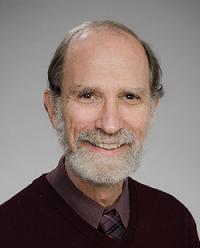Adam P.
Geballe
MD

(206) 667-5122
Fred Hutchinson CRC
PO Box 19024
1100 Fairview Ave N
Seattle, WA 98109
related links
bio
After completing training in medicine, infectious diseases, and molecular virology, Dr. Geballe established his lab at the Fred Hutchinson Cancer Center over 30 years ago. Since then, his research has focused on gene specific and global cellular mechanisms used by large DNA viruses that facilitate their replication and enable them to evade host cellular defense systems. Initially, he investigated the roles of short upstream open reading frames (uORFs) in regulating human cytomegalovirus (HCMV) gene expression in both lab and clinical viral isolates. He delved into an unusual but fascinating mechanism of translational inhibition by a peptide sequence-dependent uORF in a HCMV gene that caused ribosomal stalling at the termination step. These studies led him to appreciate that uORFs might be much more common and important than had been recognized, and indeed data emerging from ribosomal profiling, mass spectrometry, and genomic studies in many systems support this idea. Some of the best-understood and elegant mechanisms by which cells block viral replication are through antiviral intrinsic “restriction factors” such as protein kinase R (PKR) that inhibits translation. Many viruses encode antagonists of PKR and depend on these and other evasion factors in order to replicate. Thus, his group has been investigating the roles, mechanisms and evolution of PKR antagonism by large DNA viruses for the past several years. His group identified and characterized PKR antagonists in human and several nonhuman CMVs. Dissecting the mechanisms by which these genes act, how they evolve and their roles in the CMV replication and immune responses remain areas of active interest. In addition, he is investigating the interactions of herpes simplex viruses and Kapsosi's sarcoma-associated herpesvirus with their host cells.
research interests
- Regulation of DNA virus gene expression
- Evolution of host cell defenses with viral factors
- Translational control of gene expression
clinical interests
- Viral infections in immunocompromised hosts
education & training
BA, Stanford University, Stanford CA, (1970-1974)
M.D., Duke University, Durham, NC (1974-1978)
Residency, Internal Medicine University of Chicago (1978-1981)
Fellowship, Infectious Diseases, University of California, San Francisco, CA (1981-1984)
Postdoctoral Fellowship, Molecular Virology, Stanford University, Stanford, CA (1984-1987)
honors
Fellow of AAAS (2017)
James McDougall Mentoring Award (2016)
Journal of Virology, Top 20 Reviews recognition (2009)
Outstanding Mentor Award for UW Undergraduate Research (2007)
Fellow, Infectious Diseases Society of America (1994)
Special Fellowship – Leukemia Society of America (1986)
Damon Runyon – Walter Winchell Cancer Fund Fellowship (1984)
Associate Investigator of the Veterans Administration (1983)
Alpha Omega Alpha (1977)
Phi Beta Kappa (1974)
publications



